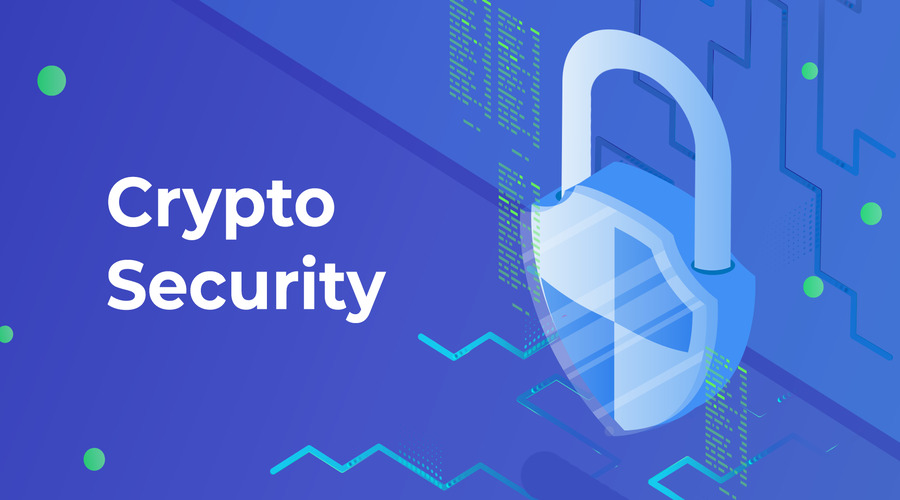Cryptocurrencies have revolutionized the financial landscape, offering a decentralized and secure means of conducting transactions. However, as the crypto ecosystem expands, so does the need for robust security measures. In this article, we will explore the future trends in crypto security, examining the challenges faced by the industry and the innovative solutions that are being developed.
Introduction to Cryptocurrencies
With the increasing popularity of cryptocurrencies, ensuring the security of digital assets has become a paramount concern. As more individuals and institutions enter the crypto space, the risks associated with cyber-attacks and vulnerabilities are on the rise. This article delves into the evolving landscape of crypto security, highlighting the current challenges and the cutting-edge innovations that aim to address them.
Understanding Crypto Security
Crypto security encompasses the measures and protocols employed to protect digital assets, transactions, and private information associated with cryptocurrencies. It involves safeguarding against a wide range of threats, including hacking attempts, phishing attacks, malware, and more. Effective crypto security is crucial for maintaining the trust and integrity of the decentralized financial system.
Current Challenges in Crypto Security
- The Vulnerability of Centralized Exchanges: Centralized exchanges have long been a target for hackers due to the concentration of funds in a single location. High-profile attacks on exchanges have resulted in significant losses for individuals and institutions alike. This highlights the need for enhanced security measures, such as robust authentication processes and advanced encryption techniques.
- Phishing and Social Engineering Attacks: Phishing attacks remain a prevalent threat in the crypto space. Hackers employ deceptive tactics to trick users into revealing their private keys or login credentials, leading to unauthorized access and theft of funds. Educating users about the risks and promoting security awareness is crucial in mitigating this challenge.
- Malware and Wallet Vulnerabilities: Malicious software and vulnerabilities in wallets pose a significant risk to crypto security. Malware can compromise the security of a user’s device, allowing attackers to gain unauthorized access to wallets and steal funds. Developers must prioritize regular audits, updates, and the implementation of robust security features to protect against these threats.
- Lack of Regulatory Frameworks: The absence of comprehensive regulatory frameworks poses challenges for crypto security. The decentralized nature of cryptocurrencies makes it difficult to enforce security standards and protect users. Regulatory bodies must work alongside industry participants to establish guidelines and standards that enhance security without stifling innovation.
Innovations in Crypto Security
- Multi-Factor Authentication and Biometrics: Multi-factor authentication (MFA) is an effective measure in enhancing crypto security. By requiring users to provide multiple forms of verification, such as passwords, biometrics, or one-time passcodes, the risk of unauthorized access is significantly reduced. Biometric authentication, including fingerprint or facial recognition, adds an extra layer of security.
- Hardware Wallets and Cold Storage Solutions: Hardware wallets offer an offline, secure storage solution for cryptocurrencies. By keeping private keys offline and away from internet-connected devices, the risk of hacking and malware attacks is minimized. Cold storage solutions, such as paper wallets or offline storage devices, provide added protection against online threats.
- Decentralized Exchanges and Smart Contracts: Decentralized exchanges (DEXs) leverage blockchain technology to facilitate peer-to-peer transactions without the need for intermediaries. DEXs enhance security by eliminating the vulnerabilities associated with centralized exchanges. Additionally, smart contracts enable self-executing transactions, reducing the risk of fraud and unauthorized modifications.
- Privacy-Enhancing Technologies: Privacy-focused cryptocurrencies and technologies, such as zero-knowledge proofs and ring signatures, provide users with enhanced privacy and confidentiality. By obfuscating transaction details and shielding user identities, these innovations address the privacy concerns associated with public blockchains.
The Role of Blockchain in Enhancing Crypto Security

- Immutable Ledger and Tamper-Proof Transactions: Blockchain’s inherent properties, including an immutable ledger and tamper-proof transactions, contribute to enhanced security. Once a transaction is recorded on the blockchain, it becomes virtually impossible to modify or manipulate, ensuring the integrity of financial transactions and asset ownership.
- Transparency and Auditing Capabilities: Blockchain technology provides transparency and auditability in the crypto space. Public blockchains allow anyone to verify transactions, promoting trust and accountability. Auditing capabilities enable regulatory bodies and businesses to conduct thorough investigations and ensure compliance with anti-money laundering (AML) and know-your-customer (KYC) regulations.
- Distributed Consensus Mechanisms: Distributed consensus mechanisms, such as Proof-of-Stake (PoS) and Proof-of-Work (PoW), play a vital role in securing blockchain networks. These algorithms ensure agreement among network participants, preventing malicious actors from gaining control over the network. Distributed consensus contributes to the overall security and resilience of blockchain ecosystems.
Privacy-Preserving Smart Contracts
Smart contracts have revolutionized various industries by automating and ensuring the execution of contractual agreements on the blockchain. However, traditional smart contracts are transparent, meaning all transaction details and contract terms are visible to anyone on the blockchain. This lack of privacy can be a concern for sensitive or confidential transactions. To address this, researchers and developers are exploring the concept of privacy-preserving smart contracts.
Privacy-preserving smart contracts employ cryptographic techniques such as zero-knowledge proofs and secure multi-party computations to allow parties involved in a contract to keep certain details private while still ensuring the integrity and validity of the contract. These advancements enable industries such as healthcare, finance, and supply chain management to leverage the benefits of smart contracts while maintaining the confidentiality of sensitive information.
Securing the Internet of Things (IoT) Devices
The proliferation of Internet of Things (IoT) devices has opened up new avenues for cyber attacks. IoT devices, ranging from smart home appliances to industrial machinery, often lack robust security measures, making them attractive targets for hackers. Compromised IoT devices can be used as entry points to gain unauthorized access to networks or even manipulate physical systems.
To bolster the security of IoT devices, several initiatives are underway. These include the integration of blockchain technology to establish decentralized and tamper-resistant device identity management systems. Blockchain-based solutions can enhance the authentication and authorization processes for IoT devices, ensuring only authorized devices can connect to a network.
Additionally, the application of distributed ledger technology in IoT can provide an auditable and transparent record of device interactions and transactions. This can aid in detecting anomalies and identifying potential security breaches or unauthorized activities.
Social Engineering Countermeasures
Social engineering attacks remain a significant threat in the crypto ecosystem. Hackers employ psychological manipulation techniques to deceive individuals into divulging sensitive information or performing actions that compromise security. Common social engineering tactics include impersonation, phishing emails, and pretexting.
To combat social engineering attacks, education and awareness play a vital role. Users should be educated about the various forms of social engineering attacks and trained to identify suspicious emails, messages, or phone calls. Implementing multi-factor authentication, particularly using hardware tokens or biometric factors, can add an extra layer of protection against social engineering attacks.
Furthermore, organizations should establish robust internal policies and procedures to validate and verify requests for sensitive information or transactions. Regular security awareness training programs can help employees stay vigilant and respond appropriately to potential social engineering attempts.
The Future of Crypto Security
- Quantum-Resistant Cryptography: Quantum computers pose a potential threat to existing cryptographic algorithms. To counter this, researchers are developing quantum-resistant cryptography that can withstand the computing power of quantum machines. Implementing such algorithms will future-proof crypto security against quantum attacks.
- AI-Powered Threat Detection and Response: Artificial intelligence (AI) technologies can augment threat detection and response mechanisms in the crypto space. Machine learning algorithms can analyze vast amounts of data to identify patterns and anomalies, aiding in the prevention and mitigation of cyber attacks. AI-powered security solutions will become increasingly crucial as the complexity of threats evolves.
- Interoperability and Standardization Efforts: Interoperability between different blockchain platforms and standardization of security protocols are essential for seamless integration and improved security. Collaborative efforts within the industry aim to establish common standards and frameworks that enhance compatibility, interoperability, and security across diverse blockchain ecosystems.
- Regulatory Advancements and Investor Protection: Regulatory advancements are necessary to strike a balance between innovation and investor protection. Governments and regulatory bodies are increasingly recognizing the importance of crypto security. The development of comprehensive regulatory frameworks will provide legal certainty, protect investors, and foster the adoption of secure practices within the industry.
Conclusion
As cryptocurrencies continue to shape the future of finance, ensuring robust security measures is paramount. The challenges faced by the crypto industry, including vulnerabilities in centralized exchanges, phishing attacks, and the lack of regulatory frameworks, necessitate innovative solutions. Advancements in multi-factor authentication, hardware wallets, decentralized exchanges, privacy-enhancing technologies, and the role of blockchain itself are paving the way for a more secure crypto ecosystem. Looking ahead, quantum-resistant cryptography, AI-powered threat detection, interoperability efforts, and regulatory advancements will play a crucial role in shaping the future of crypto security.
FAQs
Q1: Are hardware wallets completely secure?
A1: While hardware wallets offer enhanced security, no solution is entirely foolproof. It is important to purchase hardware wallets from reputable manufacturers and follow best practices, such as setting up strong PIN codes and keeping backups of recovery phrases in a safe place.
Q2: Can blockchain technology be hacked?
A2: Blockchain technology itself is highly secure due to its decentralized and immutable nature. However, vulnerabilities can arise from poorly implemented smart contracts, wallet vulnerabilities, or human errors. It is essential to employ robust security measures when interacting with blockchain-based systems.
Q3: How does quantum-resistant cryptography work?
A3: Quantum-resistant cryptography utilizes algorithms that are resistant to attacks from quantum computers. These algorithms are designed to withstand the computing power of quantum machines, ensuring the long-term security of encrypted data and transactions.
Q4: What are some privacy-enhancing technologies in the crypto space?
A4: Privacy-enhancing technologies include zero-knowledge proofs, ring signatures, and privacy-focused cryptocurrencies. These technologies aim to obfuscate transaction details and protect user identities, offering improved privacy and confidentiality.
Q5: How can individuals protect themselves from phishing attacks?
A5: To protect against phishing attacks, individuals should exercise caution when clicking on links or providing sensitive information. It is crucial to verify website URLs, enable two-factor authentication, and use reputable wallet applications or hardware wallets to minimize the risk of falling victim to phishing attempts.
I’m a Crypto author and I have written for some of the most popular Crypto publications. I have also been interviewed by leading Crypto media outlets. My work focuses on providing accurate and actionable information to help people invest in Bitcoin and other digital currencies.
I have over 10 years of experience in the financial sector, and hold a degree in Economics from the University of London.






